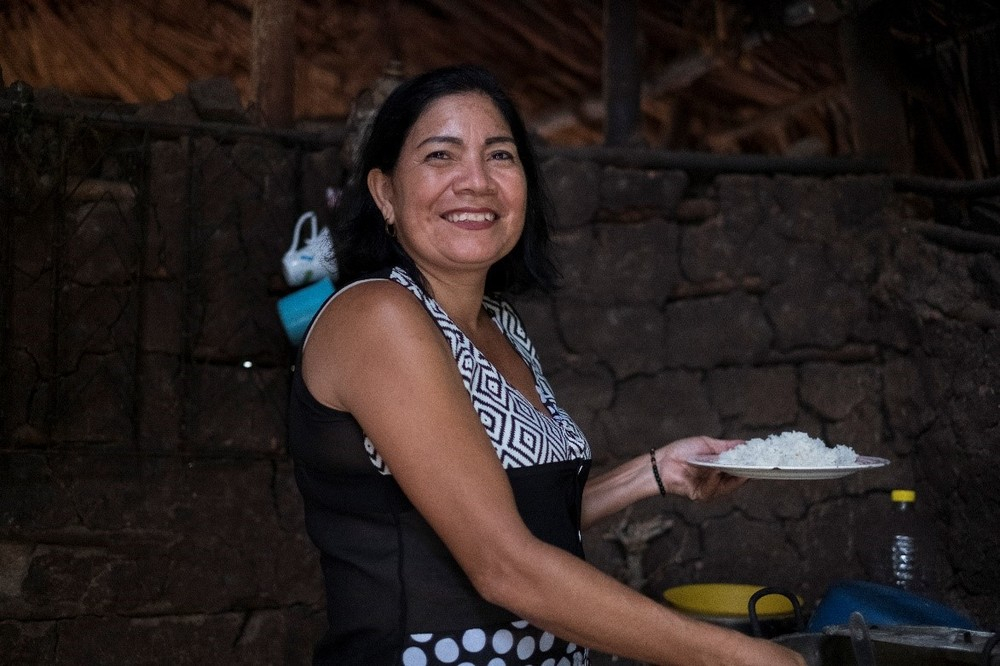A woman who went from being a mother and a nurse to the president of a regional victims’ organization (Asamblea Campesina del Cesar, Peasant Assembly of Cesar).
That is the story of Deyis Margarita Carmona Tejeda. In addition to leading the regional assembly, Deyis also leads the Community Action Board of her home village of Entre Ríos in the Cesar department of northeast Colombia.
Mining in Cesar
Entre Ríos is in the foothills of the Sierra Nevada de Santa Marta, the highest coastal mountain formation in the world. It is also part of a mining region that has been hard hit by conflict. Between 1996 and 2006, at least 3,100 people were murdered in Cesar, 55,000 farmers were driven from their land and hundreds of people disappeared. The paramilitary group responsible for these atrocities arrived roughly at the same time that mining multinationals started their operations in the area.
Only two families
Influential businessmen were kidnapped, cattle farmers were pressured to sell their land, and people were killed. “Many people left because the guerillas demanded that at least one child from every family join the movement. This shattered the community’s social fabric. Stories of members of the same family fighting on opposite sides became common,” explains Deyis. She herself lost her sister, who was forcibly disappeared and killed by paramilitary forces. “Of the founders of Entre Ríos today there are only two families left: mine and that of another man.”
It´s not over
Mining companies failed to take proper measures that are expected from companies starting to operate in a high-risk conflict zone and have so far not addressed the human rights impact. While victims have been waiting for recognition, truth and reparations for a long time, threats and assaults by paramilitary successor groups have recently increased again. At the same time, displaced families have been organizing to reclaim their land and their rights.
Fighting for their rights
Today, Deyis Carmona works with 3,500 other members of local victims’ groups in central Cesar to fight for the restitution of their lands and improve the livelihoods of local communities. In describing the assembly’s work, Deyis says: “We want to improve economic stability for the peasants, to reclaim our dignity, to ensure that we are a people with a healthy state of mind, who can enjoy our territory, with guarantees to continue working on the land, without fears, without worries, without conflicts.”
Read an interview with Deyis Margarita Carmona Tejada




